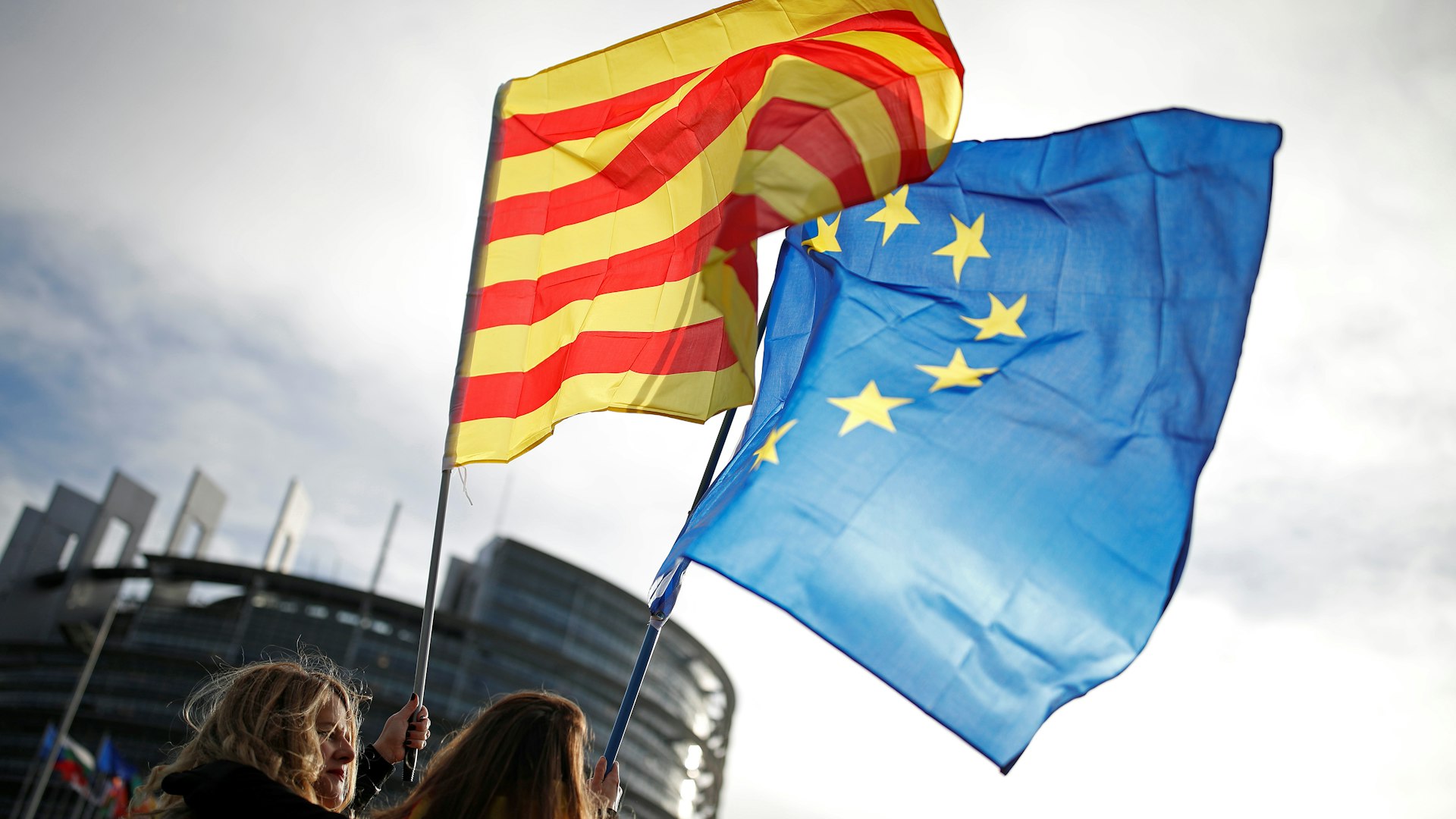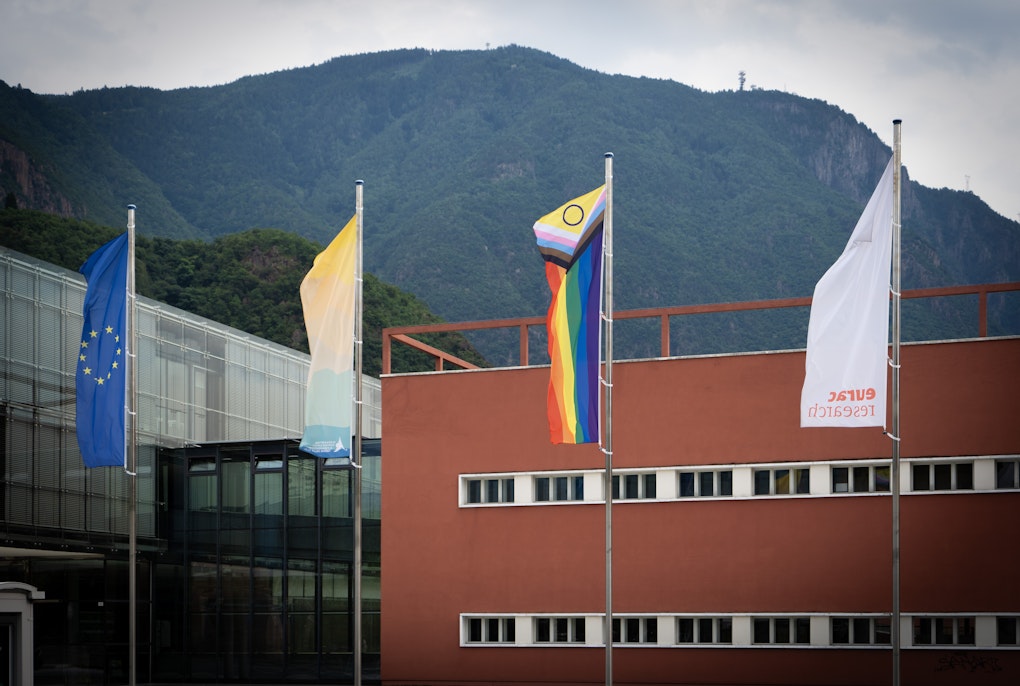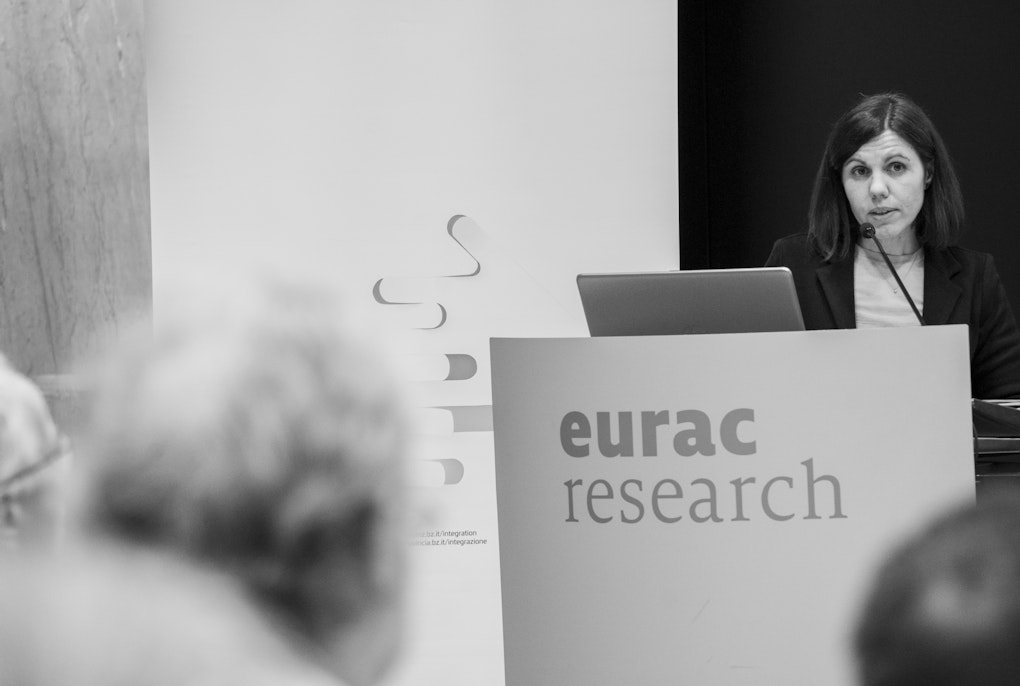magazine_ Interview
What does the European Union think about secessionist movements?
Independentist movements and EU institutions are the focus of the Annual Minority Rights Lecture
Over the past decade, the European Union has seen the highlights of two major secessionist attempts unfold in its territories: Scotland from Britain and Catalonia from Spain. Both ended badly for these movements. But what role did the European Union play in the emergence of these demands? And how did European institutions react? And which are the secessionist movements in South Tyrol? How are such movements perceived in the European Union? And, what would happen in the event of an Italexit?
In an interview with Emanuele Massetti of the University of Trento and Andrea Carlà and Günther Pallaver of Eurac Research, we examine some of these issues. The Annual Lecture entitled “Secessionist Claims in the European Union” will take place at the Eurac Research headquarters, on Feb. 5 at 5:30 p.m.
Let’s talk about Catalonia and Scotland, has the European Union played a role in the emergence of these territories’ demands for independence? Would one be mistaken in thinking that it was certain EU policies that spurred these territories into thinking seriously about independence?
Emanuele Massetti: Within the scholarly literature it is well established that the context of the European Union has been an incentive for independence secessionism. This does not mean that there was a political intention, more of a side effect of the European integration process. This new political system is based on member states which are all different in terms of importance and sizes, yet each has a place at the decision-making table. The visibility and power of a member state, however small, is incomparably greater than that of a region that is part of another state. Some claims have been prompted by the frustration of important regions not having their own representatives at European tables. This was the case for Catalonia and Scotland.
Within the scholarly literature, it is fairly well established that the context of the European Union has been an incentive for independence secessionism.
Emanuele Massetti
Another incentive for secession is the success of the European Union which offers access to a globally important market and geopolitical protection. In essence, the two problems that faced small states in earlier times – a narrow internal market and potential bullying by stronger states – are eliminated within the EU.
Independence referendums have been held in both Scotland and Catalonia. In 2014, Scotland’s vote to remain within Britain won albeit very narrowly. In 2017 in Catalonia, the referendum was declared unconstitutional and was followed by a declaration of independence and a crisis that sees its aftermath in Spanish politics to this day. What position did the EU take in these cases?
Massetti: Well at least formally, the European Union has maintained a political line of neutrality and adhered to treaties that give member states the management of their own internal constitutional issues, starting with territorial integrity.
This position of formal neutrality held by the EU implies that the interpretation of events given by the competent bodies within the state are generally accepted by the EU as a whole. And as such what is considered legitimate or illegitimate by the state organs is echoed by the Union. In the British case, the referendum had been negotiated and considered legal, and was considered so by the European Union in contrast to the strong reaction against the Catalonia government’s unilateral declaration of independence after their 2017 referendum.
So there is a neutrality of form and de facto support for states facing secessionist challenges. Although in the case of Catalonia, critical voices were raised with respect to the Spanish government’s repressive handling of citizens seeking to participate in the referendum – especially within the European Parliament.
What is the landscape of secessionist movements in South Tyrol? Are there differences with what happened in Catalonia and Scotland?
Günther Pallaver: One clearly secessionist party is the Süd Tiroler Freiheit (STF), which doubled its seats from 2 to 4 in the last local elections. The STF wants annexation to Austria. For this party, irredentist secession is the primary goal, autonomy the secondary.
Contrastingly, the Freiheitlichen are considered a semi-autonomist party whose primary issue is autonomy and whose secondary issue is self-determination. In 2012, the party launched the drive for self-determination in the form of an independent Free State to be achieved in cooperation with all three language groups represented in the province. The new party of Jürgen Wirth Anderlan (JWA), which came into being in the October 2023 elections, is rather hybrid and moves between secession and autonomy.
The difference to Scotland and Catalonia is that the secessionist parties in South Tyrol are not majority parties.
Andrea Carlà: The issue is also present in civil society; for example, the Noiland Südtirol-Sudtirolo association edited the book “Kann Südtirol Staat?” in which it asks whether a South Tyrolean state can be sustainable. I remember similar studies in Catalonia, at a stage before the referendum discussion.
However, the differences are great: in South Tyrol the secessionist forces are much weaker, more marginal. In the South Tyrolean case there is the additional role of Austria, officially a protective power of the German language group . It’s a four-way game: South Tyrol, Italy, Austria and the European Union.
The differences between the secessionist movements in South Tyrol and those in Scotland or Catalonia are great: here the secessionist forces are much weaker, more marginal. In the South Tyrolean case There is the additional role of Austria: it’s a four-way game...
Andrea Carlà
Finally, another crucial difference is that the cleavage between center and periphery which we see in Catalonia and Scotland, clashes with an internal cleavage between the Italian and German language groups in South Tyrol. And this internal cleavage is institutionalized in the Statute of Autonomy which recognizes these groups. So, the South Tyrolean secessionist movements appeal predominantly to the German language group, while in Catalonia, for example, the independence message is also addressed to non-Catalans.
Is there an official position from the European Union in case a region really achieves independence? How would relations with the new state be shaped? Would it have to start the process of joining the Union again?
Massetti: The European Union has an official and very established position on this which it retained in the Barroso and Juncker Commissions. The aforementioned were the ones that handled the most salient moments of Scotland and Catalonia’s secessionist attempts. A hypothetical new independent state would automatically place itself outside the European Union and have to apply for entry alongside all the procedures that follow, including unanimous acceptance by member states.
In various statements made by EU presidents, especially during the referendum campaigns in Scotland and Catalonia, this was the theme by which the EU aided state governments. Much emphasis has been placed on the difficulty for possible new independent states to gain access to the European Union because of the veto power of member states that are directly involved or feel threatened by possible secessionist attempts.
In both Scotland and Catalonia, however, the secessionist movements are generally pro-European. How familiar are these positions of European institutions on independence issues?
Massetti: With several distinctions, it is certainly true that these movements have a basic pro-European position. The party leaders and cadres really know what the positions of the EU institutions are with respect to their political projects.
Now, Catalan public opinion is much less Europhile than it was before the referendum.
Emanuele Massetti
They often do not report this knowledge of theirs to their constituents very clearly, mainly to reinforce the idea of independence in their voters by making them believe that the European Union is on their side and to put pressure on the European Union, which is not comfortable countering projects of political forces that present themselves as strongly pro-European.
In Catalonia, for example, strong voter disappointment was seen because independence leaders had reported a representation of EU positions that was not what was really perceived in their contacts with Brussels. All this led to a strong backlash. Now Catalan public opinion is much less Europhile than it was before the referendum.
In any case, the leaders of these parties understand their challenge is with the state in which they find themselves and they must therefore still maintain good relations with the European Union – their only potential ally even if it hasn’t provided the support they hoped for.
In South Tyrol, are the secessionist movements Europhile or Euroskeptic?
Pallaver: The Süd Tiroler Freiheit is very critical of the EU, but it cannot be called an anti-European party. The Freiheitlichen, like their equivalent in Austria, the Freiheitliche Partei Österreichs (FPÖ), has a rather negative position toward Europe, but it is much softer than that of the FPÖ. Of Jürgen Wirth Anderlan, we do not yet know his political orientation toward the EU, but since he was in the ranks of the FPÖ at the No-Vax demonstrations, one might infer political closeness with the FPÖ in this area as well.
In the 1990s there was the idea that a European Union of regions would lead to the overhaul of the nation state. Instead, today it’s obvious the European Union is a union of member states.
Andrea Carlà
Carlà: There is an interesting study that shows how secessionist parties have changed their position regarding the European Union, becoming less pro-European. This also stems from the fact that in the 1990s there was the idea that a European Union of regions would lead to the overhaul of the nation state. Instead, today it’s obvious the European Union is a union of member states.
Has anything changed for Scotland now that the United Kingdom has left the Union?
Massetti: In general, a lot has changed in the United Kingdom because of Brexit. An increased adherence to secessionist processes can be felt throughout the UK. Especially in Wales but also more worryingly in Northern Ireland, where irredentist movements keen to see a re-annexation with Ireland have gained strength. In Scotland there was a further show of support for the independence project due to pride among the Scots who had voted to remain in the Union.
Italexit would give a political boost to secessionist parties. They would ask: if Italy can leave the EU, why shouldn't we be able to leave Italy?
Günther Pallaver
Now, however, the Scottish independence project becomes much more problematic outside the EU. Scotland has to make a drastic choice: re-enter the European market or maintain its current link with the English one, which is the most important for Scotland.
What would an “Italexit” mean for secessionist movements in South Tyrol?
Pallaver: Italexit would give a political boost to secessionist parties. They would ask: if Italy can leave the EU, why shouldn't we be able to leave Italy?
Carlà: It would be a typical shock situation, the kind that upsets the cards on the table. An Italexit would shake up the binaries in which the secessionist issue is now framed and could also even become more palatable to Italian-speaking South Tyroleans.
Massetti: An exit from the European Union creates incentives for irredentism, for joining another state that has remained in the Union. We’ve seen this as the cogency of Northern Irish irredentism in approaching Ireland increases. If we translate this situation to a hypothetical Italexit, with a more significant border between Italy and Austria, the South Tyrolean question would be rekindled even with such extensive autonomy, and the desire to return with Austria could perhaps intensify.
Emanuele Massetti
Emanuele Massetti is an associate professor of political science at the School of International Studies at the University of Trento, where he teaches various courses within the Master’s program in European and International Studies. With Il Mulino he published “Il Regno Unito alla prova della Brexit” (with G. Baldini and E. Bressanelli, 2021). His latest book is “L'Unione Europea e le sfide secessioniste” (Il Mulino, 2023).
Andrea Carlà
Andrea Carlà is a senior researcher at the Institute for Minority Rights at Eurac Research. He was previously a Visiting Fellow at the Bruno Kessler Foundation, Research Center on International Politics and Conflict Resolution (Fbk-CeRPIC) in Trento, Italy and taught at the University of Dayton, USA. His research explores the interplay between ethnic politics/minority protection, migration studies and security issues, focusing particularly on the concepts of (de)securization and human security and their application to minority issues.
Günther Pallaver
Günther Pallaver is professor emeritus of political science at the University of Innsbruck and senior researcher at Eurac Research’s Institute for Comparative Federal Studies. A member of the Professional Order of Journalists, he is president of the South Tyrolean Political Science Association | politika. His research fields include: comparison of political systems, political communication, federalism, ethnic minorities and (ethno-)regional parties.








